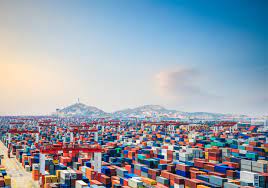Developing Countries Trading Scheme:

Exporters seeking to avail duty concessions on shipments to the UK will have to adhere to the new British rules under the Developing Countries Trading Scheme (DCTS).
- Developing Countries Trading Scheme (DCTS) is a scheme introduced by the UK Government to facilitate developing countries to integrate into the global economy, create stronger trade and investment partnerships and strengthen supply chains.
- It is a simpler and more generous preferential trading scheme which has been designed to boost trade with developing countries in order to support their development.
- It reduces or removes rates of duty, or tariffs, on imports from eligible developing countries into the UK.
- It also enables UK businesses to access thousands of products from around the globe at lower prices, reducing costs for UK consumers.
- The DCTS applies to 65 countries, that are:
- least developed countries (LDCs) as defined by the United Nations.
- low-income countries (LIC) and lower middle-income countries (LMIC) as defined by the World Bank.
- It will provide duty-free, quota-free trade to LDCs on everything but arms and duty-free, quota-free trade on 85% of eligible goods to most low LIC and LMIC countries.
- It does not extend to countries and territories deemed by the World Bank as ‘upper-middle income’ for three consecutive years, or to LICs and LMICs who have a free trade agreement (FTA) with the UK.




